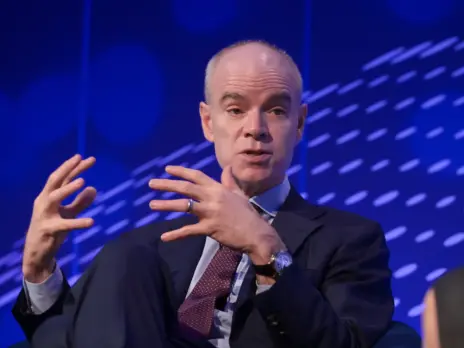
A lot of people think that British journalism is corrupted. I agree with them. Our job as journalists is to tell the truth, but repeatedly we fail. From the great global falsehoods on weapons of mass destruction and millennium bugs to the daily dribble of routine disinformation and distortion, we serve up stories which are no better than the idea that the Earth is flat.
The tricky thing is to work out why and, in particular, to go beyond the easy assumption of outsiders that we fail because we couldn’t care less, or because we are all the obedient puppets of interfering proprietors and heavy-handed corporate advertisers.
In Flat Earth News, I’ve turned over the detail of three particular newsrooms:
- The Sunday Times, where I looked at the long decline of the Insight team and of truth-telling journalism;
- The Observer, where I traced the skilful manipulation of reporters by intelligence agencies and Downing Street in the run-up to the invasion of Iraq;
- the Daily Mail, where I explored this paper’s special relationship with distorting the news.
Those sections of Flat Earth News have already attracted some flak (and, of course, some wonderfully false and distorted reporting). But the book is really trying to do something more prosaic, which is to expose some fundamental changes which have afflicted our profession in the past 20 or 30 years, with the result that even the best, most honest, decent and hard-working journalists now find themselves working in a kind of cage.
I think the most common reason for our failure to tell the truth is simply that we don’t know what the truth is. And Flat Earth News suggests that now, more than ever in the past, we are likely to engage in the mass production of ignorance because the corporations and the accountants who have taken us over have stripped out our staffing, increased our output and ended up chaining us to our desks so that generally we are simply no longer able to go out and make contacts or find stories or even check facts.
Where once we were active gatherers of news, we have become passive processors of second-hand material generated by the booming PR industry and a handful of wire agencies, most of which flows into our stories without being properly checked. The relentless impact of commercialisation has seen our journalism reduced to mere churnalism.
There are two different kinds of evidence for this. One is the daily experience of almost every reporter at almost every level in almost every print and broadcast outlet in this country, captured, in a single example, by the young provincial reporter who kept a work journal for me [see diary, below].
In his working week, he turned out 48 stories – and yet he spent a total of only three hours out of the office and spoke face to face to only four people. That is churnalism.
No reporter who is producing nearly 10 stories every shift can possibly be doing their job properly. No reporter who spends nearly 95 per cent of the time crouched over a desk can possibly develop enough good leads or build enough good contacts. No reporter who speaks to so few people in researching 48 stories can possibly be checking their truth.
All local and regional media outlets in Britain – print and broadcast – have been swamped by a tide of churnalism. The scale and quality of coverage has been swept away. But the tide has not stopped in the provinces. The big national outlets can still support some real journalism, but here too, churnalism has swept through newsrooms.
And this is where the second kind of evidence comes in. I raised some money from the Rowntree Foundation and gave it to the journalism department at Cardiff University and asked them to research our national news coverage. In a long report, they came up with three groups of statistics which – I think – tell the tale of the decline and fall of Fleet Street.
First, they analysed the origins of every single home news story which was carried by the four quality papers (Times, Telegraph, Guardian, Independent) as well as the Daily Mail during two randomly chosen weeks last year. They ended up looking at more than 2,000 stories.
With the help of The Guardian newsdesk, they then attempted to capture all of the incoming material which had been passed on to reporters during those two weeks. Where there was still any doubt about the origin of stories, they interviewed reporters from the different newspapers and then tracked backwards to find their source material. What they found was that these stories were composed overwhelmingly of second-hand material.
Fifty four per cent of the stories contained clear signs of PR input – and bear in mind that is a conservative figure. It excludes the tabloids, which carry far more celebrity stories dominated by PR material. It excludes the Financial Times and the quality finance pages, where City reporting is flooded with PR. It excludes the quality feature pages, which are heavily influenced by PR from film companies, theatres, broadcasters and publishers; and the sports pages, where access to teams and stars is run by PR.
In addition, the Cardiff researchers found that 70 per cent of these quality news stories were wholly or partly recycled from agency copy, usually the Press Association.
Now, if you merge the two figures – for PR and PA – and ask how much of Fleet Street quality news is, in fact, the work of Fleet Street’s own reporters, the answer from the Cardiff research is: 80 per cent of it is wholly, mainly or partially made up of second-hand material from PR and PA; eight per cent of
it was impossible to trace; and only 12 per cent of it was provably based on material generated by Fleet Street reporters.
The point here is not simply that we are recycling a mass of second-hand material, much of it specifically designed to serve somebody’s commercial or political interests. As a second area of research, the Cardiff specialists went on to look at those stories which relied on a specific statement of fact – and found that only 12 per cent of these stories showed any evidence that the central statement had been thoroughly checked.
Just pause and consider what those figures are suggesting: that only 12 per cent of the news stories in our most prestigious outlets are actually based entirely on material produced by the reporters who wrote them; and that only 12 per cent of the facts in those stories show evidence of having been properly checked. Of course, we run stories that aren’t true!
As the Cardiff researchers concluded: ‘Taken together, these data portray a picture of journalism in which any meaningful independent journalistic activity by the press is the exception rather than the rule. We are not talking about investigative journalism here, but the everyday practices of news judgement, fact-checking, balance, criticising and interrogating sources et cetera, that are, in theory, central to routine, day-to-day journalism.”
And then there is the third key statistic. I asked the Cardiff researchers to find all the information they could on two key points: the amount of space which Fleet Street papers have been filling with editorial copy; and the number of staff who have been hired to do so. They gathered this data for each of the past 20 years.
To check the space, they simply counted the pages in each paper for each year and subtracted the space that was used for advertisements. To check the staffing levels, they ploughed through annual reports for every Fleet Street company and, where necessary, spoke off-the-record to senior executives.
It should be said that there are some gaps in this information where companies failed to disclose figures for particular years; and some complications when Fleet Street companies bought non-national titles and included those figures in their total of employees and also failed to include freelance hiring. But the crude underlying trend which they found is overwhelming.
After 20 years which have seen a great many cuts and occasional bouts of new hiring, average staffing levels across Fleet Street companies are now slightly lower than they were two decades ago. But the amount of editorial space which those journalists are filling has trebled.
To put it another way, during those 20 years, the average time allowed for national newspaper journalists to find and check their stories has been cut to a third of its former level.
Even allowing for the role of journalists on freelance contracts who won’t show up in these figures, if you include their extra work on free sheets, websites, blogs, podcasts and vodcasts, you see that their time has been cut still further.
That is a disaster. That is why we have ended up recycling so much PR and wire copy, and that’s why we now effectively check only something like 12 per cent of our facts. That’s how our profession has been corrupted.
Next week: Nick Davies looks at the Press Association
Flat Earth News is published by Chatto and Windus on 7 February, priced £17.99
Email pged@pressgazette.co.uk to point out mistakes, provide story tips or send in a letter for publication on our "Letters Page" blog






